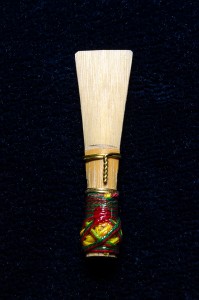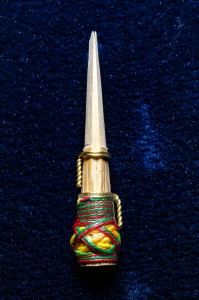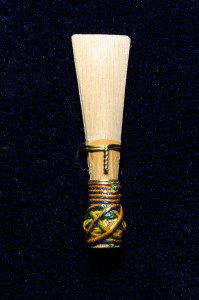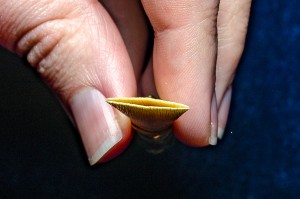*UPDATED May 10, 2016: My updates are in BOLD
These reeds come from the husband and wife team Frank and Kim Wangler. They are both accomplished bassoonists, and they both test the reeds before they are sent out.

They offer two reed styles—the standard and the premium. Their website says the difference is that the premium reeds offer more resistance. They sent me one of each to test. The standard reed fit on my bocal. The actual butt end of the reed didn’t touch the bocal. Contact happened somewhere further up the tube.

It had very good response up and down the range of the bassoon. There was some inherent instability in this reed. A few times I got worried that the reed was going to sag on me. It felt like it was playing flat, but when I checked with the tuner, it was dead on. I have a few beginners who love this reed for that very quality. It just made me anxious. I gave this reed to a student who has been playing for less than a year. He has had great success with it. His sound has never been better, and he’s more comfortable playing on it than he was on reeds I made. I was pleasantly surprised with how much this reed helped this student’s sound.

The sound of this reed was also affected by the instability I mentioned above. It caused the sound to be a bit raspy. (The sound wasn’t raspy for my beginner.) But this reed has a great low end! If you are a second bassoonist, this could be a good reed for you. I’m going to spend some time with this reed to see if I can sort out the instability problem. I think it has potential. (I found that I was simply over-blowing this reed. I require more resistance in my reeds, and this was too free-blowing for me. My younger students loved the free-blowing aspect of it.) Its intonation was quite good:
- D in the staff: 2 cents flat
- A at the top of the staff: perfectly in tune
- Low F: 7 cents sharp
Now compare those intonation results to those for the premium reed:
- D in the staff: 2 cents flat
- A at the top of the staff: perfectly in tune
- Low F: 5 cents sharp
How’s that for consistency?! These are my most consistent intonation results of any reed brand. (Note: I expect low F to be a little sharp on my bassoon, so these numbers are good!)

The premium reed had some trouble fitting on my bocal. It went on too far—between 6–7 sixteenths of an inch. It also leaked. A little paraffin wax stopped the leak. (However, the leak kept coming back. This reed has a wonderful sound, and I played it through a few rehearsals, but I couldn’t play a concert on it due to the leak.) I couldn’t have reamed this reed. It was already too reamed out.
Aside from the leaking issue, I really liked this reed! I practiced on it for an hour and had a lovely time. The response was great, the sound was darker than most newer reeds, and the tip was finished well. One of my students tried to guilt me into giving it to him, but I was too attached. It’s a great reed!

You can order Bel Canto reeds online. The standard reeds are $16.99 and the premium reeds are $21.99. Shipping is a flat $4.95. I am putting these reeds on my go-to list. They are definitely worth a try. Their website has some tips on adjusting the reeds (if they need it). The instructions are clear and there are some good diagrams. Check it out!
As always, if you have tried these reeds, please comment below!
(Note: There is a small chance that I accidentally mixed up which reed was the standard and which was the premium. I emailed Bel Canto and they assured me that they intentionally make the standard reed a little lighter with the expectation that it will stiffen as it’s played—which could account for the instability I mentioned—and they make the premium reed heavier. I also learned that the two makers differ on which reed they prefer, so give both a try!)